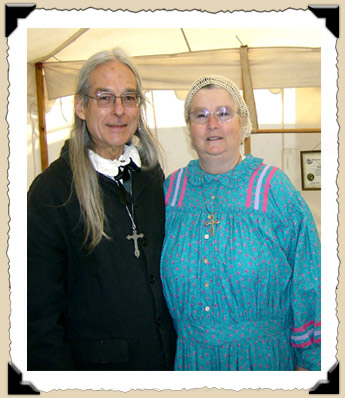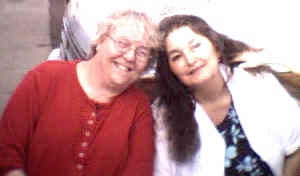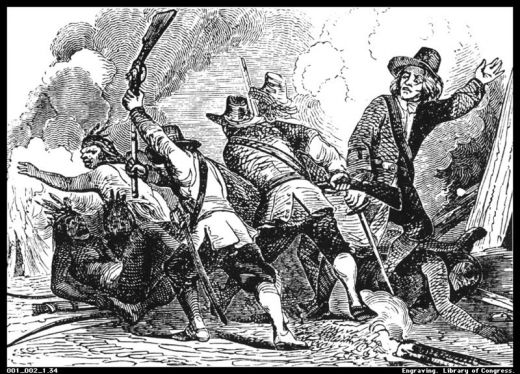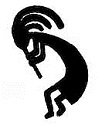Wakan Tanka
The Great Mystery
PICTURED: Rev. Hawk is a practicing minister

His heritage is Sioux (Lakota)
Rev. and Missus Hawk can be contacted
care of
Amazing Grace Circuit Church
Hosted free by tripod.com
Wakan Tanka
The Great Mystery
PICTURED: Rev. Hawk is a practicing minister

His heritage is Sioux (Lakota)
Rev. and Missus Hawk can be contacted
care of
Amazing Grace Circuit Church
Spirit in the Sky
(Norman Greenbaum)
1.
ARTIST: Norman Greenbaum
TITLE: Spirit in the Sky
When I die and they lay me to rest
Gonna go to the place that's the best
When I lay me down to die
Goin' up to the spirit in the sky
Goin' up to the spirit in the sky
That's where I'm gonna go when I die
When I die and they lay me to rest
Gonna go to the place that's the best
2.
Prepare yourself you know it's a must
Gotta have a friend in Jesus
So you know that when you die
He's gonna recommend you
To the spirit in the sky
Gonna recommend you
To the spirit in the sky
That's where you're gonna go when you die
When you die and they lay you to rest
You're gonna go to the place that's the best
3.
Never been a sinner I never sinned
I got a friend in Jesus
So you know that when I die
He's gonna set me up with
The spirit in the sky
Oh set me up with the spirit in the sky
That's where I'm gonna go when I die
When I die and they lay me to rest
I'm gonna go to the place that's the best
Go to the place that's the best
Amazing similarities: Indians and Jews
The seeking: Everyone believes in something
Wiconi International - the Jesus Way
Roy Wilson, the medicine wheel (storyteller)
Opportunities and openings, many peoples
Kate Luckie (two spirit woman) - Earth Mother Crying
Charles Roos, "Medicine Man" & guru of Native Mysticism
American Native Spirituality - "Don't Call It RELIGION"
Walking (Talking) with Grandfather - Michael Hardin
Native American Health Awareness : cancer
The Holy Spirit in Hebrew and Jewish Tradition
The Schools : native anguish and survival
Civilize them with a stick : by Mary Crow Dog
Indian Schools : girls stripped naked, horse whipped
Eliayhu Rips : the mysterious Torah Code
The peril of joining Church and State
Look inside - and find God there
Religion is for people who're afraid of going to hell. Spirituality is for those who've already been there.
[ Vine Deloria ]
Nature's Creation is Filled with God's Joy

Sacred Woman
|
Queen Afua: A sacred woman is an evolved woman. A powerful woman. A natural medicine woman. A gentle woman. A warrior woman. A vibrant woman. A spiritually mature woman. A woman who knows how to heal herself and her family. Sacred Woman: A Guide To Healing The Feminine Body, Mind And Spiritby Queen Afua |
Whites failed to heed Roger Williams (or the Quakers)
As in Spanish America they ignored the warnings of Bartolomé de las Casas
(above article by William R. Wilson)I found an interesting book, The Great Fear : Race in the Mind of America, at a local coffee shop. The subtitle is descriptive enough: Nine historians probe the historical origins of white racial attitudes and their effect on today's racial crisis. I've written before, elsewhere, about the use of religion to justify slavery and perpetuate racism. Religion can be, and is, regularly used to justify evil.
The Great Fear provides more examples to support my case.
The first essay in the book is by Gary B. Nash (who also edited the book) and examines the relationship of the earliest English settlers to the Native Americans. Religion played a great role in English justification of their actions:
Richard Hakluyt, the great propagandist for English colonization, described the Indians in 1585 as "simple and rude in manners, and destitute of the knowledge of God or any good lawes, yet of nature gentle and tractable, and most apt to receive the Christian Religion, and to subject themselves to some good government." (p. 2)
The English needed land. Taking it from the natives would ultimately benefit the godless heathens:The English claimed they came to share, not appropriate, the trackless wilderness. The Indians would benefit because they would be elevated far above their present condition through contact with a richer culture, a more advanced civilization, and most importantly, the Christian religion. (p. 3)And religion was quickly used not only to justify, but to explain: "Samuel Purchas, a clerical promoter of English expansion, gave classic expression to this idea: 'God in wisedome...enriched the Savage Countries, that those riches might be attractive for Christian suters, which there may sowe spirituals and reape temporals.'"
Got that? God set things up so the greed of the English would motivate them to 'save' the Indians.
"Purchas went on to argue that to leave undeveloped a sparsely settled land populated only by a few natives was to oppose the wishes of God who would not have showed Englishmen the way to the New World if he had not intended them to possess it. (p. 3-4)"Unfortunately, the heathens didn't end up getting the benefit of all this good will:
Despite many professions of concern for converting the natives, New England ministers made only a few perfunctory efforts in this direction.... Before the end of the first decade of Puritan settlement, the Indian had come to stand for Satanic opposition to the divine experiment being conducted in the Bay Colony.... With the drama of colony building invested with divine guidance, with the hand of God seen in every act, to kill an Indian who had demonstrated his resistance or opposition to the Massachusets Bay Colony, was only to destroy an opponent of God....The climax of the [Pequot] war came when the Puritans surrounded 500 Pequot men, women and children in Mystic Fort and burned them to death. The Massachusetst leaders, suffused with a sense of mission, recorded that God 'had laughed at his enemies...making them as a fiery oven...Thus did the Lord judge among the Heathen, filling the Place [the fort] with dead bodies.' To dehumanize the Indians was one means of justifying one's own inhumanity. (p. 5)
Of course I am picking out the most relevant quotes here. Many factors other than religion helped to shape the English attitudes and policies toward the American Indians, and Nash's essay is about the origins of racism, not just its religious roots.However, religion definitely played a role. And the attitudes toward the Indians carried over into attitudes towards the Africans who were brought to America as slaves.

|
mos maiorum the customs of our ancestors
The following is from Chief Luther Standing Bear The white man does not understand the Indian for the reason that he does not understand America. He is too far removed from its formative processes. The roots of the tree of his life have not yet grasped the rock and soil. The white man is still troubled with primitive fears; he still has in his consciousness the perils of this frontier continent, some of its vastness not yet having yielded to his questing footsteps and inquiring eyes. He shudders still with the memory of the loss of his forefathers upon its scorching deserts and forbidding mountain-tops. The man from, Europe is still a foreigner and an alien. And he still hates the man who questioned his path across the continent. But in the Indian the spirit of the land is still vested; it will be so until other men are able to divine and meet its rhythm. Men must be born and reborn to belong. Their bodies must be formed of the dust of their forefather's bones. Chief Luther Standing Bear, Lakota - Oglala band [1933] |

Heaven's Blessing On This Land of America
|
On the State Capitol building of California are the words: "Bring me men to match my mountains." The cry of America from the beginning of its development has gone up that invitation for the great and noble to come and partake of the greatness of a heritage of freedom, and to give the land in which they live, be it village, hamlet, town or city.
God desires a people who can pioneer in physical, scientific and spiritual fields. He desires mankind not only to understand the purpose of their existence, but to courageously cast out all fear -- to march with their faces to the light, unwaveringly and uncomplainingly. He that they learn to humble themselves in great and mighty prayer that they might be a great people. No man is greater than his power to humble himself. He desires a people who can exercise faith to accomplish the things beyond human power. "And he who receiveth all things with thankfulness shall be made glorious; and the things of this earth shall be added unto him, even a hundred-fold, yea, more." Man shall not live by bread alone. Beyond the daily activities necessary to live comfortably, there must be a reaching, a desiring, a progress of the mind and soul. Every man should live because upon his shoulders rests a divine responsibility. Analee Skarin |
An Irony - Virginian John Rolfe's marriage to Pocahontas
|
"When the English first arrive in America, neither the colonists nor Indians think of themselves or each other in racial terms. On the contrary, Protestant England's hated rival is Catholic Spain, while Native Americans see themselves as many nations divided by language, custom and power. When the Powhatan princess Pocahontas marries colonist John Rolfe, the union causes a scandal in the British court, not because Rolfe has married an Indian, but because Pocahontas, a princess, has married a commoner. In 17th-century England, social station is more important than physical differences." (Race: The Power of An Illusion)
See 'Race: The Power of An Illusion,' 10 October 2009 (www.pbs.org/race) |
Native Spirituality the Simplest of All - Nature Mysticism
|
The Native-American religion worshipped the Great Spirit and practiced an ancestor cult wholly founded on the spirits of the dead. Visions, ghosts, signs and omens, spectral wonders, and the everpresence of the intangible world was their genius and way of life, their reality. See Susan B. Martinez. The Psychic Life of Abraham Lincoln. (238) |
At times, in the silence of the night and in rare, lonely moments, I come
up-
on a sort of communion of myself and something great that is not myself.
H.G. Wells
'
Dream Songs and Ceremony
Song and dance are, perhaps, only a little less old than man himself. It is with his music and dance, the recreation through art o the rhythms suggested by and implicit in the tempo of his life and cultural environment, that man purges his soul of the tensions of daily strife and maintains his harmony in the universe. [p 185]
 |
Gabrielle Roth (in Sweat Your Prayers):
I feel my soul and body when I dance ... I've surrendered to the wild, ecstatic embrace of the dance, I've found a language of patterns I can trust to deliver ... into eternal truths ... older than time. In rhythm of the body, we can trace our holiness, roots that go all the way back.

site creator Robert Shepherd
last save 12.23.11